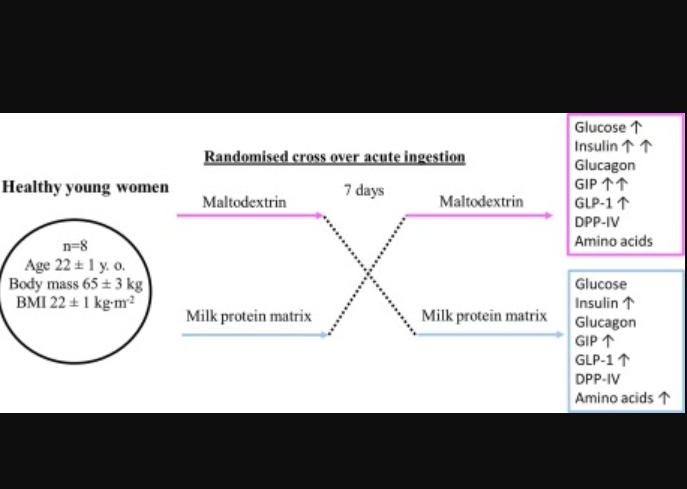Miryam Amigo-Benavent Journal of Functional Foods Volume 72, September 2020, 104056
Highlights
• MPM comprised MPC and hydrolysates with potent in vitro insulinotropic bioactivity.
• Indexed to isocaloric maltodextrin, MPM evoked a postprandial insulin score of 45%
• MPM evoked 50% MALT’s GIP response, with no changes in GLP-1.
• MPM did not modify plasma DPP-IV activity.
Independent of glucose, ingestion of protein evokes an insulinotropic response due to enterogastric incretin hormones and hyperaminoacidemia. The aim of this study was to characterise insulin and incretin secretion in healthy young women (age 22.0 ± 1.2 y, n =
Following ingestion of 0.33 g protein/kg body mass, plasma insulin, glucose, glucagon, total glucose-dependent insulinotropic polypeptide (GIP), active glucagon-like peptide-1 (GLP-1), DPP-IV activity and amino acids were measured over a 3 h period. These biomarkers were also determined following ingestion of an isocaloric maltodextrin drink (MALT) in order to estimate the equivalent glucose-dependent response. Ingestion of MPM evoked ~50% of the insulin response obtained with MALT without hyperglycaemia. Time-dependent changes in plasma GIP, GLP-1 and amino acid levels indicated these factors were probably regulators of insulin secretion on MPM ingestion.















